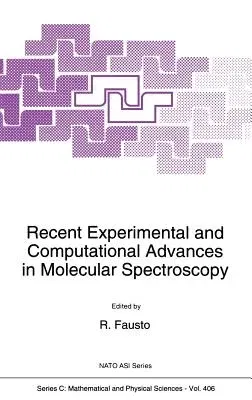Both molecular spectroscopy and computational chemistry have witnessed
rapid significant progresses in recent years. On the one hand, it is
nowadays possible to compute, to quite a reasonable degree of accuracy,
almost all fundamental spectroscopic properties for small molecular
systems. The theoretical approach is now properly considered to be of
fundamental importance in attaining a high degree of understanding of
spectroscopic information. Moreover, it may be also a great help in
designing and planning experiments. On the other hand, new and very
powerful experimental techniques have been developed.
This book combines an advanced teaching standpoint with an emphasis on
the interplay between theoretical and experimental molecular
spectroscopy. It covers a wide range of topics (such as molecular
dynamics and reactivity, conformational analysis, hydrogen bonding and
solvent effects, spectroscopy of excited states, complex spectra
interpretation and simulation, software development and biochemical
applications of molecular spectroscopy) and considers a large variety of
molecular spectroscopic techniques, either from an experimental or from
a theoretical perspective.
(short text)
This book combines an advanced teaching standpoint with an emphasis on
the interplay between theoretical and experimental molecular
spectroscopy. It covers a wide range of topics (such as molecular
dynamics and reactivity, conformational analysis, hydrogen bonding and
solvent effects, spectroscopy of excited states, complex spectra
interpretation and simulation, software development and biochemical
applications of molecular spectroscopy) and considers a large variety of
molecular spectroscopic techniques either from an experimental or from a
theoretical perspective.

